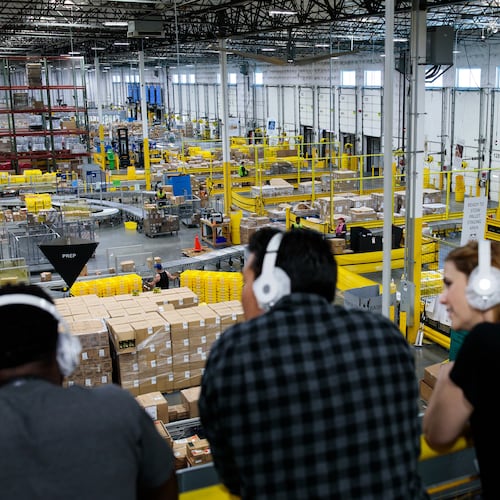U.S. stocks are pulling a bit lower in afternoon trading Friday as worries about the worsening pandemic undercut growing optimism about a coming coronavirus vaccine.
The S&P 500 fell 0.2%. The Dow Jones Industrial Average was down 132 points, or 0.5%, at 29,349, and the Nasdaq composite rose 0.2%. Treasury yields were holding steady, while stock markets around the world made only modest moves.
Wall Street has suddenly begun to teeter-totter this week after a big November rally swept both the S&P 500 and Dow to record highs. Evidence is piling up for investors both for hope about the economy’s prospects next year and for fear about the damage accruing in the shorter term. The S&P 500 is on track for a 0.3% dip this week, on the heels of a 7.3% weekly surge followed by a 2.2% climb.
“It’s a market concerned about growth,” said Quincy Krosby, chief market strategist at Prudential Financial. “That’s the big uncertainty.”
Adding to the optimistic side of the ledger Friday was Pfizer and BioNTech saying they’ll submit an application with U.S. regulators for emergency use of their vaccine candidate. Data suggests it may be 95% effective at preventing mild to severe COVID-19 disease.
If approved, a limited number of doses could begin being administered as early as next month, though widescale vaccinations likely wouldn’t happen until after a potentially brutal winter. Other vaccines are also under development, and the hope is that one or more could get the economy running closer to normal next year.
On the pessimistic side, more governments around the world are bringing back restrictions on daily life to slow the spread of the virus. Surging coronavirus counts and hospitalizations also threaten to frighten consumers enough to keep them hunkered at home and drag on the economy.
California’s governor announced late Thursday an overnight curfew on most residents in the state, the Centers for Disease Control and Prevention is asking Americans not to travel for Thanksgiving and authorities from Lisbon to Sri Lanka announced varying degrees of restrictions.
“On the road to the other side of the pandemic are detours and we’re in one of those detours,” Krosby said.
The U.S. Treasury Department also said late Thursday that it will not extend several emergency loan programs set up with the Federal Reserve during the worst of the spring’s turmoil to help prop up markets and the economy.
The announcement got some immediate pushback from the Fed, which has been keeping the accelerator floored on its support for the economy while asking politicians in the White House and Congress to do the same. The central bank said it “would prefer that the full suite of emergency facilities” created during the pandemic remain.
But Treasury Secretary Steven Mnuchin said closing the emergency loan programs could allow Congress to re-appropriate $455 billion to other relief programs. Democrats and Republicans in Washington have been deadlocked in efforts to deliver another round of financial support for the economy following the expiration of supplemental benefits for laid-off workers and other stimulus approved during the spring.
The majority of stocks in the S&P 500 were falling, with financial companies dropping more than the rest of the market. Banks have often moved with expectations for the economy’s strength, as healthier trends would mean more people paying back loans at potentially higher interest rates. Regions Financial fell 2.6%.
Cruise lines were among the biggest decliners. Norwegian Cruise Line slid 4.3% and Carnival fell 4.2%.
On the winning side was Williams-Sonoma, which rose 5.5% after reporting stronger profit and revenue for the latest quarter than analysts expected.
The yield on the 10-year Treasury slipped to 0.83% from 0.84% late Thursday.
In European stock markets, the French CAC 40 rose 0.4%, and the German DAX returned 0.4%. The FTSE 100 in London added 0.3%.
In Asia, Japan’s Nikkei 225 slipped 0.4%, South Korea’s Kospi gained 0.2% and Hong Kong’s Hang Seng added 0.4%. Stocks in Shanghai rose 0.4%.
About the Author
Keep Reading
The Latest
Featured


